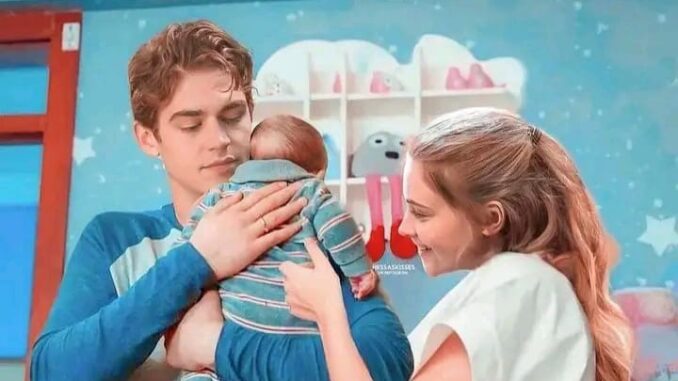
In After We Fell, there’s a scene that doesn’t involve slamming doors or jealous outbursts. It doesn’t involve Hardin yelling or Tessa storming out. No, this moment is much quieter—but infinitely more painful. It’s the scene when Tessa finds out that she may not be able to have children. And in that moment, the foundation of her future—her dreams, her sense of identity, her hope—begins to quietly crumble.
This revelation doesn’t come with dramatic music or a sweeping monologue. It arrives like a cold wind, subtle but shattering. Tessa sits in the doctor’s office, absorbing the words that no young woman ever expects to hear. There’s no one there to hold her hand. No one to wipe her tears. She’s alone. And somehow, that’s what makes the pain feel even more real.
Up to this point in the series, we’ve watched Tessa navigate a chaotic love story. She’s weathered Hardin’s rage, his insecurities, his deep emotional wounds. And still, she’s stood by him. But this moment? This is about her. For the first time, the chaos isn’t about Hardin’s trauma. It’s about her body, her choices, and her private grief. And it hurts in a completely different way.
Josephine Langford delivers this moment with haunting vulnerability. Her expression doesn’t scream or collapse. It just… cracks. And in that crack, we see a young woman who’s been trying so hard to hold everyone else together, suddenly faced with a truth that no one can fix for her. Not even Hardin.

The emotional fallout of this scene lingers well beyond the doctor’s office. Tessa doesn’t immediately tell Hardin. And that choice—though small—says everything. She’s tired of always making space for his storms while hers go unnoticed. For once, she needs to sit with her own pain, without having to manage someone else’s reaction.
And when she finally does try to tell him? He fails her. Not intentionally, but unmistakably. He’s too consumed by his own issues, too reactive, too afraid. He doesn’t know how to be there for her. And that’s when Tessa begins to see the relationship not just for what it is—but for what it can’t be.
Because love isn’t just about passion or chemistry. It’s about being able to share your deepest fears without being met with more chaos. It’s about being able to say, “I’m hurting,” and know that someone will sit beside you in that darkness without making it about themselves.
This storyline struck a powerful chord with fans. Across social media, people opened up about their own experiences—about fertility fears, chronic illness, the pressure to build a “perfect” future. After We Fell dared to bring that pain to light, and in doing so, gave countless viewers a voice.
More than that, it gave Tessa dimension. She’s not just the girl in love with the broken boy. She’s a woman facing her own heartbreak, making her own choices, and discovering that strength sometimes means walking through grief alone.
This episode in the film isn’t explosive. It doesn’t end in a dramatic kiss or a tearful reunion. But it’s one of the most powerful moments in the entire series. Because it’s real. And because it reminds us that growing up doesn’t just mean falling in love—it also means surviving the moments when life doesn’t go as planned. In that quiet scene, After We Fell stops being a romance for a second. It becomes a mirror. One that reflects the fears so many of us carry in silence.
